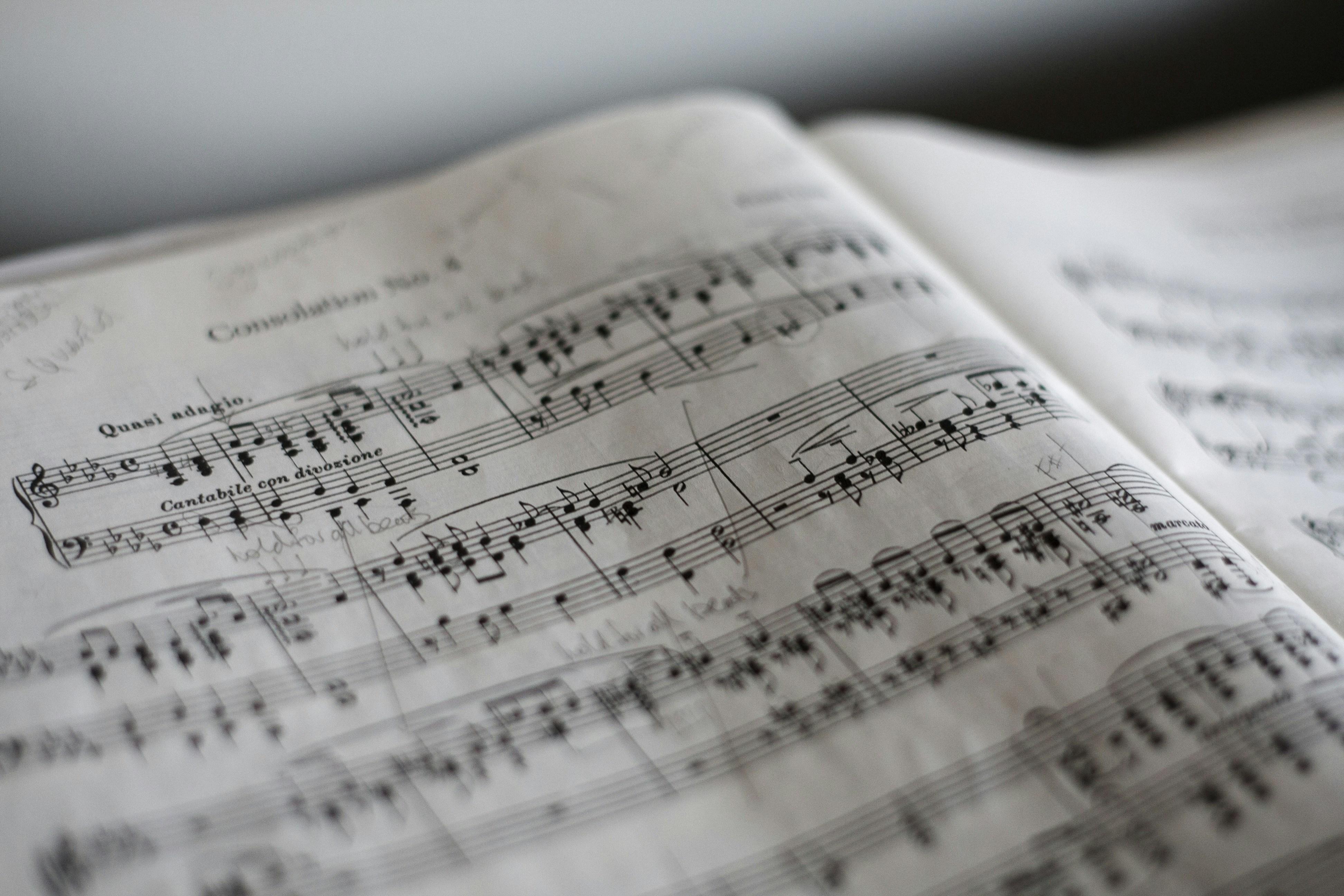In the realm of cinematic artistry, music holds a pivotal role, often serving as the unseen hand that guides the emotional and narrative journey of a film. The interplay between visual storytelling and auditory experience creates a rich tapestry that can elevate a film from mere entertainment to a profound artistic expression. This article delves into the significance of music in film, with a particular focus on the category of Best Original Score at the Oscars. By examining the criteria and historical trends associated with this prestigious award, we aim to uncover how an exceptional musical score not only enhances a film’s emotional resonance but also influences its success during the Oscar season. Through an analytical lens, we explore the symbiotic relationship between a film’s score and its overall reception, highlighting the ways in which music contributes to a film’s legacy and its recognition by the Academy.
Impact of Musical Composition on Cinematic Narrative
The subtle yet powerful role of musical composition in film is often underestimated, despite its profound impact on the cinematic narrative. The score acts as an invisible character, guiding the audience’s emotional journey and enhancing the storytelling experience. It can transform a simple scene into a poignant moment or a thrilling sequence, adding layers of meaning and depth. Composers like John Williams, Hans Zimmer, and Ennio Morricone have demonstrated how a well-crafted score can elevate a film from good to extraordinary, making it memorable and impactful.
- Emotional Resonance: Music underscores the emotional beats of a story, aligning the audience’s feelings with the characters’ journeys.
- Narrative Pacing: A dynamic score can manipulate the pacing, building tension or providing relief as needed.
- Thematic Consistency: Recurring motifs and themes in the score reinforce the film’s narrative and thematic elements.
The impact of a musical score on a film’s narrative is often recognized during awards season, where the Best Original Score category acknowledges the integral role music plays in the storytelling process. Films with compelling scores are more likely to resonate with both audiences and critics, often leading to greater Oscar success. This highlights the symbiotic relationship between a film’s narrative and its musical accompaniment, illustrating that a powerful score can indeed be a cornerstone of cinematic achievement.

Analyzing Trends in Oscar-Winning Scores
Over the decades, the landscape of Oscar-winning scores has evolved, reflecting broader shifts in cinematic storytelling and audience expectations. Analyzing these trends reveals intriguing patterns that underscore the importance of music in film. Historically, scores that align closely with a film’s narrative arc and emotional beats tend to resonate more with the Academy. The integration of orchestral compositions with innovative sound design has been a hallmark of many winners, showcasing a blend of tradition and modernity.
Key trends in Oscar-winning scores include:
- Cultural Influence: Composers increasingly draw on diverse cultural soundscapes, integrating traditional instruments and motifs to enrich storytelling.
- Technological Innovation: The use of digital technology and electronic elements has expanded the sonic possibilities, allowing for more experimental and unique scores.
- Emotional Depth: Scores that enhance the emotional depth of a film, providing an additional layer to the narrative, are often favored.
These elements collectively highlight how music not only complements but elevates a film’s artistic impact, often tipping the scales in Oscar considerations.
Strategies for Composing Award-Worthy Film Music
Composing music that stands out in the cinematic landscape requires a blend of creativity and strategic thinking. Understanding the narrative is the first step; a composer must delve into the film’s emotional arc, capturing the essence of each scene and translating it into musical motifs that resonate with the audience. It’s not just about matching the tone, but enhancing it, making the score an integral character in the storytelling process.
- Collaboration with Directors and Editors: Effective communication with directors and editors is crucial. This collaboration ensures that the music aligns with the director’s vision and the film’s pacing, helping to craft a cohesive auditory experience.
- Innovation in Sound: Utilizing unique instruments or electronic elements can give a score a distinctive edge. Experimentation with unconventional sounds can lead to fresh and memorable auditory experiences that captivate the Oscar voters.
- Leitmotifs and Themes: Developing recurring themes or leitmotifs for characters or significant plot points can create a lasting impact. These themes can subtly evolve throughout the film, mirroring character development or plot twists.
Ultimately, the goal is to create a score that not only supports the film but also stands on its own as a piece of art, compelling the Academy to take notice. By strategically blending narrative understanding, collaboration, innovation, and thematic development, composers can craft scores that truly elevate the cinematic experience and position themselves as strong contenders for the Best Original Score category.

The Relationship Between Original Score and Audience Engagement
Understanding how a film’s score resonates with its audience can provide insights into its overall success. A compelling original score can enhance the viewer’s emotional experience, often becoming a crucial part of the narrative itself. Audience engagement can be influenced by several factors related to the score:
- Emotional Connection: Music that effectively captures the essence of a scene can evoke strong emotions, making the film more memorable.
- Memorability: Scores that include distinctive themes or motifs can linger in the audience’s mind, encouraging discussions and repeat viewings.
- Narrative Enhancement: A well-composed score can help to clarify the story, guiding the audience through complex plot points with ease.
These elements contribute to a film’s overall impact and can often be linked to its success at the Oscars. When a score successfully enhances audience engagement, it not only elevates the film but also increases its chances of recognition by the Academy.
In Conclusion
the role of music in film, particularly through the lens of the Best Original Score category at the Oscars, underscores the profound impact that a well-crafted score can have on a film’s overall success and its reception by both audiences and critics. As we have explored, a memorable score not only enhances the narrative and emotional depth of a film but also elevates its artistic merit, often becoming a crucial factor in the film’s journey through awards season. While the criteria for Oscar success are multifaceted and ever-evolving, the enduring influence of a powerful original score remains a testament to the unique synergy between music and storytelling in cinema. As filmmakers continue to innovate and push the boundaries of musical composition, the interplay between film and music will undoubtedly remain a cornerstone of cinematic excellence, captivating audiences and shaping the legacy of films for generations to come.
